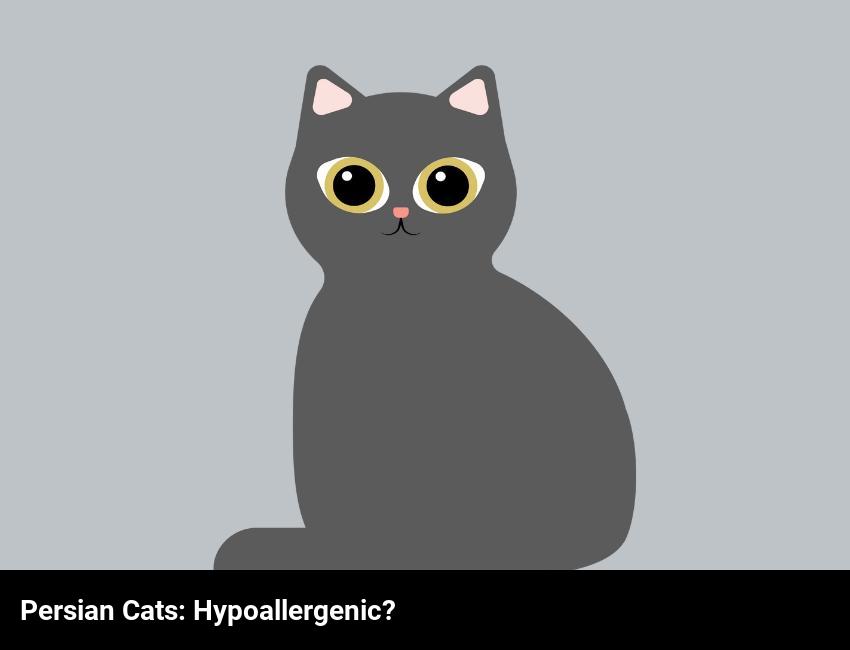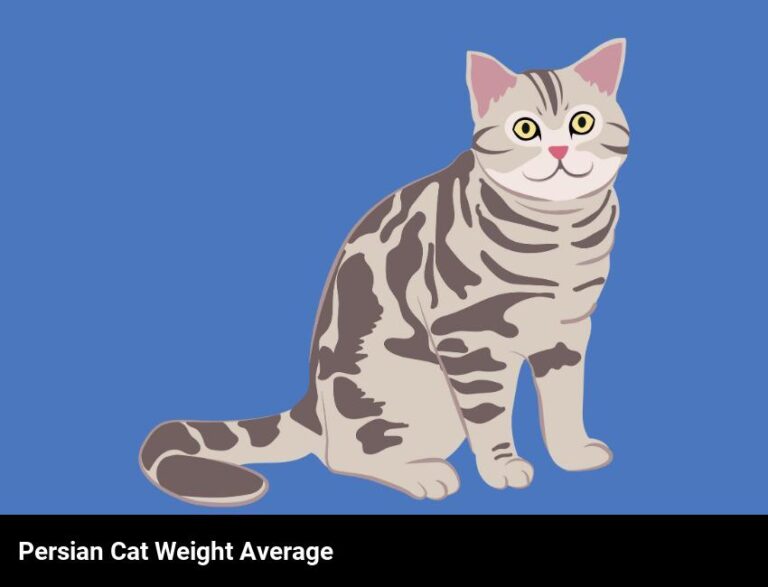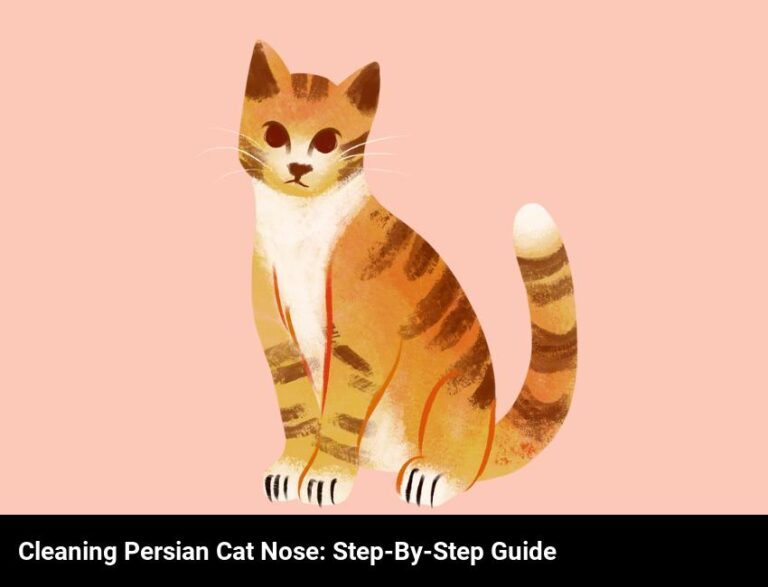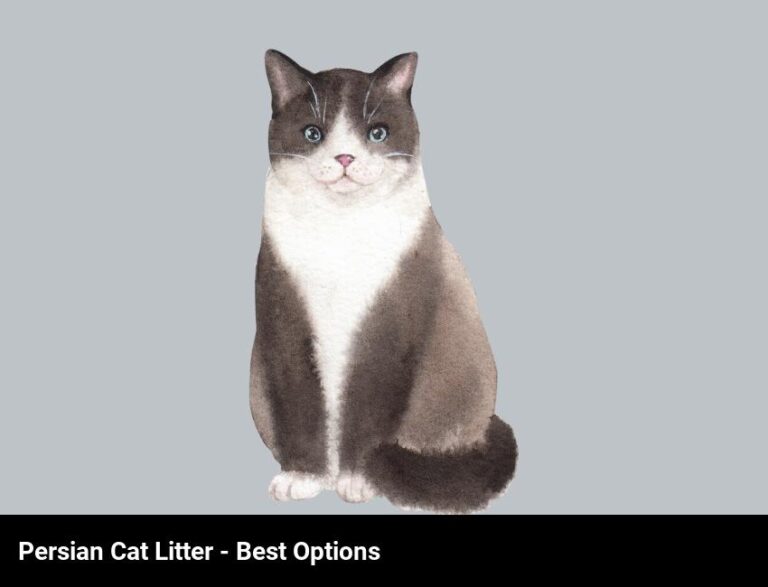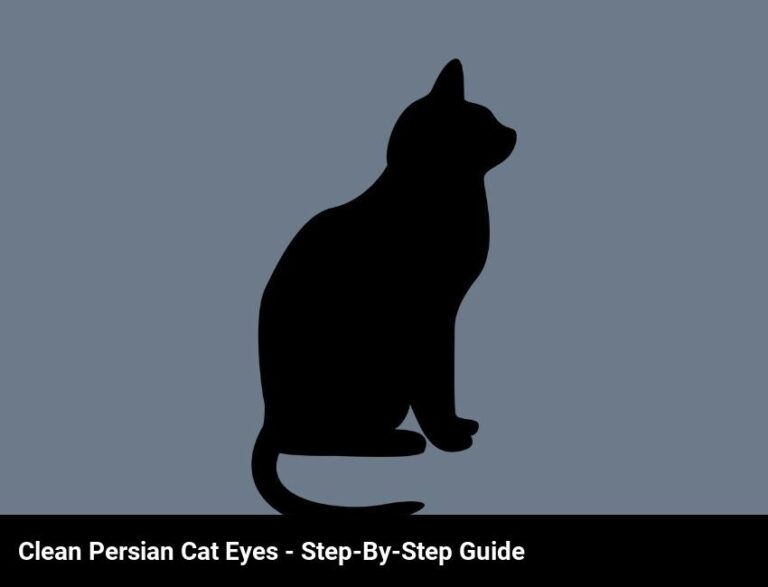Are Persian Cats Hypoallergenic?
Yes, Persian cats are hypoallergenic. They are a breed of cat that produces less of the proteins that cause allergies than other cats.
Having always been a cat lover, I have had the pleasure of meeting and growing close to countless feline friends in my life. But there was always something special about Persian cats that caught my attention and made me question – are Persian cats hypoallergenic?
This breed of cats is undoubtedly one of the most beautiful and majestic creatures that I have ever encountered. From their long and luscious fur to their uniquely shaped face and eyes, Persian cats have a look that is hard to forget. But, as with any breed, there are important considerations that need to be taken when deciding if a Persian cat is the right fit for you.
In this blog post, I will be exploring the mysteries and wonders of Persian cats. We will discuss what makes them so special and explore their unique characteristics. We will also look into the question of whether Persian cats are hypoallergenic and any risks associated with owning them. Additionally, I will provide tips on the best environment for a Persian cat and the frequency of grooming that is required. Finally, I will discuss what to look for when purchasing a Persian cat.
So, if you’re considering bringing a Persian cat into your life, read on and discover all the answers to your questions on this majestic breed of cats.
What makes persian cats so special?
Persian cats are unique and special cats with a wide variety of features that make them stand out from other breeds. To start with, they have a distinct look. Persian cats have long, luxurious coats and a beautiful, round face with an adorable flat nose, big eyes, and long, dangling ears. They come in a variety of colors, from black to white to brown, and can have either long or short hair.
In addition to their beautiful looks, Persian cats are known for their sweet, gentle nature. They make great companions, as they are very affectionate and loyal. They are also known for their playful personalities and enjoy interacting with their owners. They are also very intelligent and can learn tricks quickly.
Another great thing about Persian cats is that they are very low maintenance. They have a thick coat that requires only minimal grooming, and they don’t need to be bathed very often. They are also quite clean animals, so you don’t have to worry about them making a mess.
Overall, Persian cats are special because of their unique looks and personalities, their intelligence, and their low maintenance. They are the perfect pet for anyone looking for an affectionate, loyal, and beautiful companion.
Does the breed come with any unique characteristics?
Yes! Persian cats come with a number of unique characteristics that make them stand out from other breeds. For starters, they’ve got that signature long, fluffy coat that is oh-so-soft and silky. Their faces are also quite distinctive, with their big eyes and round heads.
Another unique characteristic of Persian cats is their calm demeanor. They are known for being gentle and sweet with their owners, and for being independent and low-maintenance. This makes them a great choice for busy cat owners who can’t dedicate too much time to their furry friends.
Persian cats are also quite intelligent. They are highly trainable, and they love to learn new tricks and explore their environment. With the right amount of patience and consistency, you can even train them to use a litter box and come when you call their name.
Finally, Persian cats are hypoallergenic, which is a huge plus for anyone who is allergic to cats. This makes them an ideal choice for those who want to enjoy the companionship of a feline friend, without all the sneezing and watery eyes.
Are persian cats hypoallergenic?
Yes! Persian cats are hypoallergenic. This means that those with allergies can enjoy the company of these beautiful cats without suffering from sneezing, coughing, or itchy eyes.
The reason Persian cats don’t cause allergies is because they produce very little of the protein that causes allergic reactions. This protein, also known as “Fel d 1,” is found in cats’ saliva, urine, and fur, but Persian cats shed very little. In addition, they groom themselves frequently, which means that the amount of Fel d 1 on their fur is kept to a minimum.
While Persian cats are generally hypoallergenic, it’s important to remember that everyone’s allergies are different. The best way to determine if you can be around a Persian cat is to spend some time with one and see how your body responds.
Persian cats make wonderful companions for people with allergies. They are very gentle and affectionate, and their calm demeanor means they’re not likely to cause any sudden reactions. Plus, they have stunningly beautiful coats that require minimal maintenance.
If you have allergies but would like to have a cat in your life, a Persian cat might be the perfect fit. With their hypoallergenic coats and gentle nature, you can enjoy the company of your feline friend without the worry of sneezing or wheezing.
What are some tips for taking care of a persian cat?
Are you ready to learn how to take the best possible care of your Persian kitty? Here are some tips to get you started:
- Grooming: Persian cats have long, luxurious fur that requires regular brushing and combing to keep it looking its best. Invest in a good quality brush, and brush your cat at least once a week.
- Diet: Persian cats need a balanced diet with all the essential nutrients. Ask your veterinarian for a recommendation. Also, make sure to always have fresh water available.
- Exercise: Persian cats are relatively laid-back, but they still need regular exercise. Get interactive toys and play with your kitty to keep them physically and mentally healthy.
- Vet Visits: Regular check-ups with your vet are essential to keep your cat healthy and happy. Make sure to keep up-to-date on all the necessary vaccinations, flea and tick treatments, and other preventative care.
- Socialization: Persian cats are social creatures, and they need plenty of love and attention. Make sure to give your cat plenty of quality time and create a stimulating environment for them to thrive in.
Are there any risks involved in owning a persian cat?
Absolutely! While Persian cats are generally considered hypoallergenic, there are some potential risks that come with owning one. As with any pet, there is always the chance of a pet-related allergic reaction. These reactions can range from mild to severe, and can even be life-threatening in some cases.
The most common risk associated with owning a Persian cat is their long, luxurious fur. Persian cats have incredibly thick coats, and this can be a potential source of allergies for some people. The fur can cause sneezing, red eyes, and even asthma attacks in some cases. Also, because of their thick coats, Persian cats require regular brushing and grooming to prevent skin irritation, knotting, and matting.
Another risk with Persian cats is their high-maintenance needs. They require daily brushing and need their coats trimmed every eight to twelve weeks. They also need their eyes, ears, and nails cleaned regularly, and their litter box needs to be changed daily. If you don’t have the time or ability to provide these things, then a Persian cat may not be the right pet for you.
Finally, Persian cats are prone to certain health issues, such as kidney and bladder stones, which can be expensive to treat. Also, because of their facial structure, Persian cats can suffer from breathing difficulties and have a higher risk of developing respiratory infections.
Although there are some potential risks to owning a Persian cat, they are still a wonderful pet for those who can provide them with the care and attention they need. With proper care, you and your Persian cat will have a long and happy life together.
What type of environment is best suited for a persian cat?
If you’re looking for a perfect home for your Persian cat, there are certain environmental factors to consider. Firstly, Persian cats are very sensitive to their environment, so a calm and quiet home is best. Keep your home free from too much noise and activity, which could be stressful for them. Also, Persian cats are sociable animals and love the company of their owners, so having some people around to interact with them is important.
Another important factor to consider is temperature. As these cats have long, thick fur, they do best in an environment where the temperature is not too hot nor too cold. A room temperature between 60 to 70 degrees Fahrenheit is ideal, and you should also keep your Persian cat away from direct sunlight in order to prevent heat stroke.
Finally, Persian cats need plenty of space to play and explore. Be sure to provide them with a space that is large enough for them to move around and explore in safety. Having some scratching posts, toys, and other activities for your cat to engage in is also important for their mental stimulation.
By taking these factors into consideration, you can make sure that your Persian cat is in the best possible environment. With the right environment, your Persian cat will be happy and healthy.
How often do persian cats need grooming?
You sure do have to pamper your Persian cat! Brushing and combing your cat’s luxurious coat is a must since Persian cats have long, dense fur that needs regular grooming.
How often should you groom your Persian cat? Generally, it’s best to brush your cat’s coat every day or every other day. You may need to comb out any tangles during the brushing and trim the fur from around their face. This helps keep the fur from becoming matted and keeps their coat looking beautiful!
You should also give your Persian cat a bath every two weeks or so. You’ll want to use a shampoo that’s specifically formulated for cats. This helps keep their coat soft and smooth, and it’s important to keep the fur clean to reduce the risk of skin irritations.
In addition, trim your Persian cat’s nails every few weeks. This helps keep their nails healthy and prevent them from getting too long.
Grooming your Persian cat regularly is an essential part of being a good pet parent! Not only is it important for their coat, but it also helps to build a bond between you and your furry friend. It’s also a great way to check for any signs of skin irritations or other health issues.
What should you look for when purchasing a persian cat?
When purchasing a Persian cat, there are several things you should look for. First and foremost, check the cat’s overall health. Look for signs of good coat condition, clear eyes and ears, and a healthy appetite. Make sure the cat is well-socialized, as this will make it easier to integrate into your home.
Next, research the breed you are considering. Look for a reputable breeder who can provide information on the cat’s health history, genetic background, and any specific needs they may have. Be sure to ask questions and make sure you are getting the right cat for your lifestyle.
Finally, be aware of the potential costs associated with owning a Persian cat. This breed is known to have a high maintenance coat, and you may need to be prepared to pay for regular grooming. In addition, it is important to consider the financial commitment of feeding, veterinary care, and other ongoing costs.
When purchasing a Persian cat, these key factors will ensure that you make the right choice for you and your new feline companion. With proper research and preparation, your new cat will be a healthy and happy addition to your home.

Frequently Asked Questions
What makes persian cats different from other cats?
Persian cats are known for their long, thick coats and their flattened face. They have shorter legs than other breeds, making them appear stocky and cuddly. They are also known for their sweet, gentle nature, making them ideal for a calm and loving home. Persian cats come in a variety of coat colors, so you can find one to match your own style.
What are the best ways to determine if a persian cat is hypoallergenic?
The best way to determine if a Persian cat is hypoallergenic is to research the breed and ask your veterinarian. You can also look for cats with a single layer coat, as they usually produce less dander and cause fewer allergic reactions. Additionally, it is helpful to observe the cat’s behavior and ask the breeder or owner if they have had any reports of allergies from previous owners.
Are there any particular health concerns to consider when owning a hypoallergenic persian cat?
Yes, there are particular health concerns to consider when owning a hypoallergenic Persian cat. Persian cats are prone to genetic health issues such as polycystic kidney disease and progressive retinal atrophy. It is important to make sure your cat is up-to-date on vaccinations and provide them with regular health check-ups. Additionally, it is important to recognize that even hypoallergenic cats produce a low level of dander, which can still cause allergic reactions.

